Paleontology
-
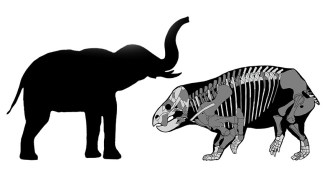 Paleontology
PaleontologyThis huge plant eater thrived in the age of dinosaurs — but wasn’t one of them
A newly named plant-eater from the Late Triassic was surprisingly hefty.
-
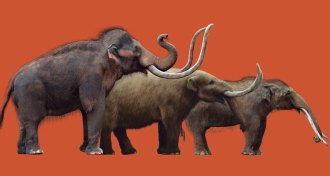 Ecosystems
EcosystemsHow mammoths competed with other animals and lost
Mammoths, mastodons and other ancient elephants were wiped out at the end of the last ice age by climate change and spear-wielding humans.
-
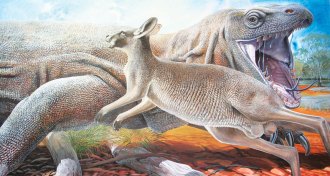 Paleontology
Paleontology‘End of the Megafauna’ examines why so many giant Ice Age animals went extinct
‘End of the Megafauna’ ponders the mystery of what killed off so many of Earth’s big animals over the last 50,000 years.
By Erin Wayman -
 Paleontology
PaleontologyEggs evolved color and speckles only once — during the age of dinosaurs
Birds’ colorful eggs were inherited from their nonavian dinosaur ancestors.
-
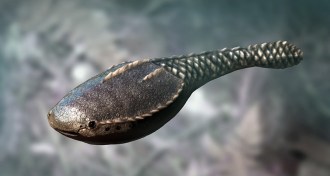 Paleontology
PaleontologyThe first vertebrates on Earth arose in shallow coastal waters
After appearing about 480 million years ago in coastal waters, the earliest vertebrates stayed in the shallows for another 100 million years.
-
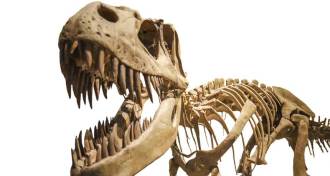 Paleontology
PaleontologyT. rex pulverized bones with an incredible amount of force
Tyrannosaurus rex’s powerful bite and remarkably strong teeth helped the dinosaur crush bones.
-
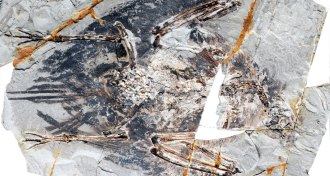 Paleontology
PaleontologyIn a first, scientists spot what may be lungs in an ancient bird fossil
Possible traces of lungs preserved with a 120-million-year-old bird fossil could represent a respiratory system similar to that of modern birds.
-
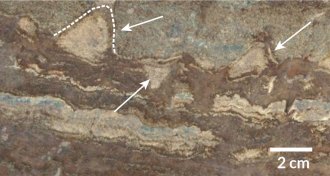 Earth
EarthThese ancient mounds may not be the earliest fossils on Earth after all
A new analysis suggests that tectonics, not microbes, formed cone-shaped structures in 3.7-billion-year-old rock.
-
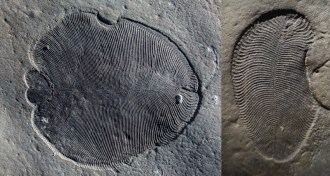 Paleontology
PaleontologyCholesterol traces suggest these mysterious fossils were animals, not fungi
Traces of cholesterol still clinging to a group of enigmatic Ediacaran fossils suggests the weird critters were animals, not fungi or lichen.
-
 Science & Society
Science & SocietyBefore it burned, Brazil’s National Museum gave much to science
When Brazil’s National Museum went up in flames, so did the hard work of the researchers who work there.
-
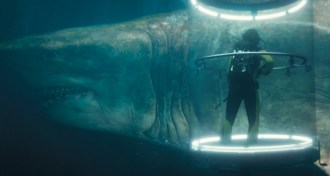 Paleontology
PaleontologyWhat ‘The Meg’ gets wrong — and right — about megalodon sharks
A paleobiologist helps Science News separate shark fact from fiction in the new Jason Statham film The Meg.
-
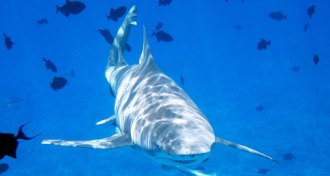 Paleontology
PaleontologyFossil teeth show how a mass extinction scrambled shark evolution
The dinosaur-destroying mass extinction event didn’t wipe out sharks, but it did change their fate.